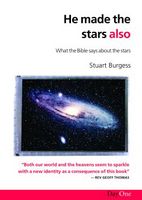Speakers (left to right): Ted Donnelley, Mark Johnston, Al Martin, Graham Heaps,
Iain Murray & Maurice Roberts
(Garry Williams must be a little camera-shy as he didn't turn up for the photo-call)
I last attended the Leicester Minister's Conference over a decade ago, so it was good to return to the f0ld this year. It was a time of excellent ministry and good fellowship.
Maurice Roberts of Inverness opened the conference with a sermon on Jude. We were urged to contend for the faith once delivered to the saints over and against the false teachings of our age.
Ted Donnelley of Northern Ireland gave three addresses on Preaching in Pagan Times - The Ministry of Jeremiah. Donnolley urged us to preach the judgement of God just as Jeremiah preached God's judgement in his own day. This message will cut through the corrupt relativism of our times and confront people with their need to repent and believe the gospel. But preaching judgement will have a cost. Jeremiah suffered for his message as this sensitive poet was shunned, schemed against and persecuted because of his faithfulness to the truth. The prophet did not labour in vain. His message gave hope to the people of God at the time of the Babylonian captivity. Donnelley's final address pointed us to the new covenant hope of Jeremiah that finds its fulfilment in the Lord Jesus Christ. These messages were heart warming, challenging and uplifting. Ted Donnelley has an exceptional gift of being able to get into the text of Scripture and into the hearts of his hearers. I have never failed to listen to him without being deeply affected.
I was present when Al Martin last spoke at the conference on conversion back in 1989. This time, he preached on Keep a Close Watch on Yourself and on the Teaching, based on 1 Timothy 4:16. With his rich baritone voice, aged features and close-cropped hair the veteran preacher resembled a Word War II General. Time (and grace) has mellowed Al Martin somewhat. Gone (mostly) was the shouty preaching style of old as Al gave us a good mixture of Biblical exposition and practical application. In the last address Martin powerfully warned us against Ministry-destroying and God-dishonouring sin. Only by taking heed to ourselves and pursuing holiness can we avoid becoming part of the ministerial wreckage that the preacher had witnessed during his long years in the pastorate.





